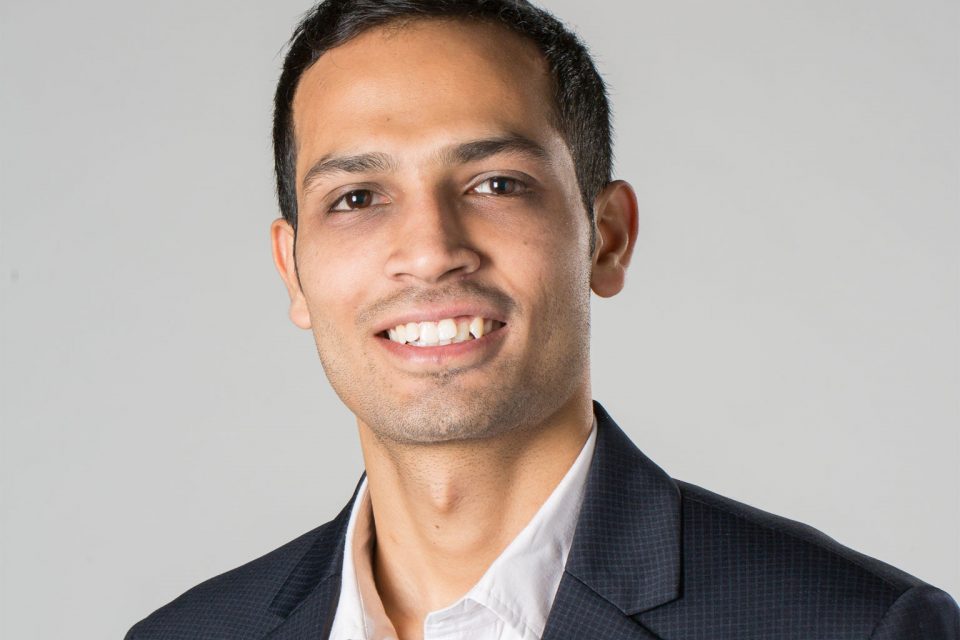DSI Alumni Download: Amogh Mishra, Machine Learning Engineer at BNP Paribas
June 16, 2021

Amogh Mishra came to New York City for the M.S. in Data Science program at Columbia University from Lucknow, Uttar Pradesh, India. He immediately found comfort by playing cricket and exploring food trucks throughout the five boroughs. He credits the Data Science Institute (DSI) with helping him to gain more humility, more knowledge, and lifelong memories. Today, the 2021 alumnus is a machine learning engineer for BNP Paribas. Here, he shares more about how he got started in data science, and how DSI has impacted his career journey.
Why did you choose to pursue a career in data science?
I think what really made me stick with data science was its ability to have a dynamic work impact across verticals. We can also see how artificial intelligence has percolated itself in finance, health, gaming, government, etc. I think studying it was the best advice I ever got.
Did you take time to work before starting graduate school?
I worked at Kenome, a nascent startup working on harnessing unstructured data through knowledge graphs and natural language processing to provide intelligent business insights. Being an early employee there, I had an exceptional opportunity to understand the technical and business intricacies of a startup. Not only I was involved in building entire data-centric core products, but also I was facing the customers which proved pivotal for my growth before coming to Columbia.
How did your undergraduate experience at PES Institute of Technology prepare you for graduate studies in data science?
Since my undergrad was in computer science, I think I had a solid foundation laid before I started my journey [at Columbia]. I also took linear algebra, calculus, applied machine learning, and natural language processing, which helped me go deeper into concepts during grad school. I’d recommend having a strong grip on mathematical concepts as a prerequisite. Its importance blemishes in front of the glamour of machine learning and deep learning, but it is certainly a deal-breaker. Moreover, it also helps you make a strong case for yourself when going into interviews.
Why did you choose to come to Columbia for the M.S. in Data Science program?
Choosing Columbia was an easy decision; it was packed with everything I needed. Personally, I wanted to go deeper on the mathematical side of data science, which was a part of their core courses. They also provided me with several electives which gave me enough flexibility to build a cogent profile. Apart from this, it hosted some of the best professors in the best city.
What was your favorite course during the M.S. in Data Science program?
Machine Learning by John Paisley was nicely structured and had all the important concepts explained in-depth accompanied by assignments that added to my understanding of concepts. Recommendation Systems by Brett Vintch was application-based and brought an industry outlook. We had projects to deliver where he gave us the freedom to choose algorithms and take design decisions to build a good recommendation system. I believe that a strong conceptual foundation and an ability to build industry-scale solutions are important skill sets to own and both courses provided it to me.
Did you complete an internship during your time at Columbia?
I interned at BNP Paribas in their Analytics Lab during the summer of 2020. It was a different experience since it was the first time I worked at a bank. Due to the pandemic, the internship was remote and reduced to five weeks, which made me nervous. However, the team members were amazing and I adapted to the new normal of networking through Skype, working from home, and finished a 10-week internship in a five-week timeline. Additionally, I was assigned a research project that helped me hone my skills and learnings. The trust my team put in me allowed me the freedom to experiment with different approaches to the problems, giving me the confidence to deliver the best I could.
In which other ways did the pandemic impact your experience during the M.S. in Data Science program?
A major part of my experience at Columbia was driven by the vibe on-campus. Switching to a remote setting was something that none of us had planned, and it certainly did have an impact on the experience. I missed studying late at the Butler Library or pulling an all-nighter at the DSI lounge chasing an assignment deadline. However, the transition to virtual coursework was smooth and DSI kept high academic standards, too.
— Sharnice Ottley